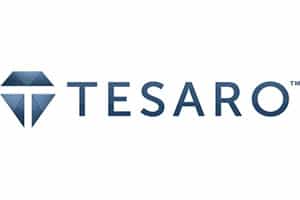 Swiss biotech Tesaro has picked up a CHMP recommendation for its PARP inhibitor Zejula as a maintenance therapy for ovarian cancer, upping the ante in its rivalry with AstraZeneca and Clovis Oncology.
Swiss biotech Tesaro has picked up a CHMP recommendation for its PARP inhibitor Zejula as a maintenance therapy for ovarian cancer, upping the ante in its rivalry with AstraZeneca and Clovis Oncology.
The EMA’s advisory committee backed Zejula (niraparib) on the strength of data showing it can improved progression-free survival (PFS) compared to placebo in ovarian cancer patients.
Once approval comes through Zejula will join AZ’s Lynparza (olaparib) and Roche’s Avastin (bevacizumab), currently the only two drugs approved for maintenance therapy of ovarian cancer in Europe.
Zejula’s CHMP recommendation gives it one key advantage over the Merck & Co-partnered Lynparza – its closest rival – in that it has been backed for use in all patients, while for now AZ’s drug is approved in the EU only for ovarian cancer patients with a BRCA mutation.
Tesaro picked up an FDA approval for its drug in March, and claims it has become the most widely-prescribed PARP inhibitor despite reaching the market almost three years after Lynparza. Last month however AZ and Merck won an all-comer indication from the FDA for their drug, plus a green light for an improved formulation, that puts it back in contention.
A third PARP inhibitor – Clovis’ Rubraca (rucaparib) – was approved in the US last December as a third-line therapy for BRCA-positive ovarian cancer, and does not yet have a maintenance indication although it is in the process of seeking one. Analysts at Leerink have suggested that the three drugs will end up splitting the market in a three-horse race.
CHMP meeting round-up
Aside from Zejula, at its last meeting the CHMP backed GlaxoSmithKline’s triple chronic obstructive pulmonary disease (COPD) therapy Trelegy/Elebrato, Janssen-Cilag’s Tremfya (guselkumab) for plaque psoriasis and Steba Biotech’s Tookad (padeliporfin) for prostate cancer.
Also given the nod were two drugs from Mundipharma intended to help people with opioid addiction – Nyxoid (naloxone) and Zubsolv (buprenorphine/naloxone), while Spanish drugmaker Grifols got the go-ahead for VeraSeal (human fibrinogen/human thrombin), a sealant for use during surgical procedures.
The CHMP recommended approval of two biosimilars, namely Samsung Bioepis’ Ontruzant (trastuzumab) – the first biosimilar of Roche’s breast cancer therapy Herceptin to get a positive opinion in the EU – and Boehringer Ingelheim’s Cyltezo (adalimumab), a biosimilar of AbbVie’s immune therapy Humira.




